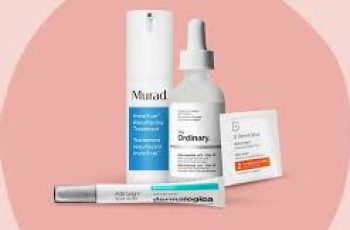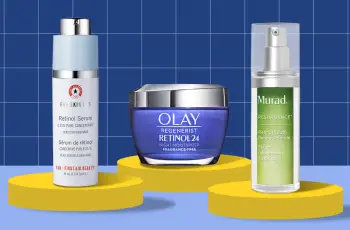
Dry Oils in Skin Care: The Trend You Should Know About
If you’ve been exploring skincare recently, you’ve probably come across the term “dry oils.”
It’s a buzzword that’s taking over beauty routines, but what exactly are dry oils, and how do they fit into your skincare regimen?
Despite their name, dry oils don’t actually dry out your skin—quite the opposite, in fact.
These oils provide moisture without the greasy after-feel of traditional oils. Let’s dive into everything you need to know about dry oils, from what they are to how they benefit your skin.
What is a Dry Oil?
A dry oil is a type of oil commonly used in skin care that’s rich in polyunsaturated fatty acids.
These oils are special because, when exposed to air (or oxidized), they harden into a thin, non-greasy film on the skin.
Unlike other oils that may leave a slippery or oily feeling, dry oils absorb quickly and leave the skin with a smooth, dry finish.
They hydrate the skin without making it feel heavy or greasy, making them ideal for those who want moisturization without the unwanted shine.
The term “dry oil” is more of a marketing term than a scientific one.
It doesn’t mean the oil is dry or has been powdered; instead, it refers to how the oil behaves on the skin, becoming less greasy after application.
What Makes Dry Oils Different from Other Oils?
In skin care, oils are often categorized by the type of fats they contain. Dry oils are made from unsaturated fatty acids, which are more liquid at room temperature and tend to absorb quickly into the skin.
These oils provide hydration without clogging pores or leaving a shiny residue.
On the other hand, saturated oils (like coconut oil or shea butter) are thicker and often create a creamy texture at room temperature.
These oils are slower to absorb and may leave a more visible, greasy layer on the skin.
The main difference between dry oils and their more saturated counterparts is the texture.
Dry oils are preferred by people with oily or combination skin because they offer moisture without overwhelming the skin with additional oils or clogging pores.
However, the type of oil you use should depend on your specific skin type and concerns.
Are Dry Oils Good for Your Skin?
Yes! Dry oils are beneficial for skin health, especially when used in moderation. They can help to:
Hydrate and Nourish the Skin: Like other oils, dry oils contain essential fatty acids and lipids that help maintain the skin’s natural barrier. These ingredients lock in moisture and prevent water loss.
Repair the Skin Barrier: Dry oils provide lipids that aid in repairing damaged skin barriers, making them particularly useful for those with conditions like eczema or psoriasis.
Sooth Inflammation: Many dry oils, like argan oil, are known for their anti-inflammatory properties.
This makes them great for soothing irritated skin, calming redness, or managing conditions like acne or rosacea.
However, it’s essential to note that while dry oils are typically lighter than saturated oils, they may still not be suitable for every skin type.
Dry oils are especially effective for oily or acne-prone skin, but if you have extremely dry skin, you may need to layer these oils with a more emollient moisturizer for optimal hydration.
Common Dry Oils Used in Skin Care
Several dry oils are commonly used in skincare due to their beneficial properties. Some of the most popular dry oils include:
Argan Oil – Known for its high vitamin E content and anti-inflammatory properties, argan oil is often used to treat skin conditions like rosacea, eczema, and psoriasis.
It’s a go-to oil for sensitive skin types that need hydration and healing.
Avocado Oil – Rich in fatty acids and vitamins, avocado oil nourishes the skin while offering anti-inflammatory benefits.
It’s ideal for soothing irritation, and its high linoleic acid content makes it excellent for acne-prone skin.
Rosehip Oil – A great oil for those with scarred or aging skin, rosehip oil contains high levels of essential fatty acids and antioxidants.
It promotes skin regeneration and can improve skin texture and tone.
Grapeseed Oil – Light and packed with antioxidants, grapeseed oil is excellent for oily skin types. It helps in balancing sebum production and is a favorite for those seeking oil control.
Sunflower Oil – This oil is high in linoleic acid, making it great for soothing dry, irritated skin. It’s also known for its ability to hydrate without clogging pores, making it perfect for acne-prone skin.
Safflower Oil – Like sunflower oil, safflower oil is rich in linoleic acid and is commonly used for its ability to improve skin elasticity and prevent moisture loss.
Evening Primrose Oil – Known for its ability to balance hormonal skin fluctuations, evening primrose oil is often used to treat acne and eczema.
Which Dry Oil Is Best for Your Face?
When it comes to choosing the right dry oil for your face, it’s crucial to match the oil to your skin type and concerns. Here are some recommendations:
Sensitive or Red, Inflamed Skin: Argan oil is one of the best options. It’s known for soothing irritation and reducing redness, making it perfect for rosacea or eczema-prone skin.
Oily or Acne-Prone Skin: Grapeseed oil is light, non-comedogenic, and excellent for controlling excess oil without blocking pores. It’s a great option for keeping the skin hydrated while avoiding breakouts.
Dry or Aging Skin: If you have dry skin and are looking for a nourishing oil, rosehip oil is an excellent choice. It helps promote cell regeneration and provides much-needed hydration without being greasy.
Benefits of Using Dry Oils
Dry oils have a wide array of benefits, making them a versatile addition to many skincare routines. Here’s why they’re becoming increasingly popular:
Hydration: Dry oils lock in moisture without the greasy residue, making them an excellent option for people who need hydration but don’t want to feel oily.
Skin Repair: They’re packed with essential fatty acids and antioxidants, which help repair and maintain the skin’s natural barrier.
Anti-Inflammatory: Many dry oils, such as argan and rosehip oil, have anti-inflammatory properties that help calm irritated skin and reduce redness.
Non-Greasy: These oils are quickly absorbed into the skin, leaving behind a silky smooth finish without a greasy feel.
Suitable for Acne-Prone Skin: Because of their lightweight texture, dry oils are often recommended for oily or acne-prone skin, where heavier oils can clog pores.
Can You Use Dry Oils with Retinoids?
Absolutely! Dry oils can be safely incorporated into your skincare routine alongside retinoids, but it’s important to apply them in the right order.
Before Applying Retinoids: Apply your dry oil first. This helps create a barrier that allows the retinoids to penetrate more effectively into the skin.
After Retinoids: Using dry oils after retinoids may reduce their efficacy, as the oil can act as a barrier, limiting absorption.
When using both dry oils and retinoids, it’s essential to monitor your skin for any signs of irritation, as retinoids can sometimes cause dryness or sensitivity.
Do Dry Oils Dry Out the Skin?
Despite their name, dry oils do not actually dry out the skin. In fact, they are hydrating and help maintain moisture in the skin.
The “dry” in dry oils refers to their ability to absorb quickly into the skin, leaving a non-greasy finish. So, they moisturize without feeling heavy or sticky.
Conclusion: Are Dry Oils Right for You?
Dry oils are a fantastic option for those looking for a lightweight, non-greasy alternative to traditional oils.
They are especially suitable for oily, combination, or acne-prone skin types who still need hydration.
However, if you have very dry skin, you might need to layer them with heavier moisturizers for optimal hydration.
Before incorporating any type of oil into your routine, be sure to identify your Baumann Skin Type to ensure you’re choosing products that work best for your skin.
Dry oils can be a great addition to your regimen, but they are not one-size-fits-all!
If you’re ready to find out which oils and products will work best for your skin, take our Baumann Skin Type Quiz and start building a personalized skincare routine today!


